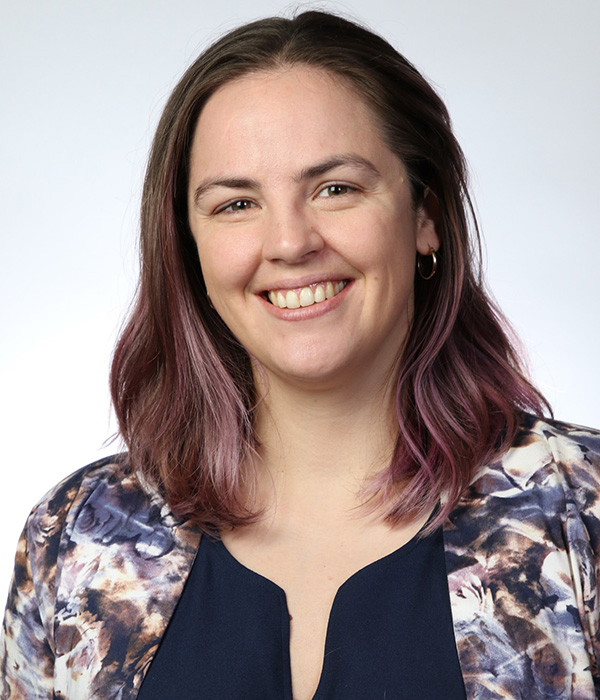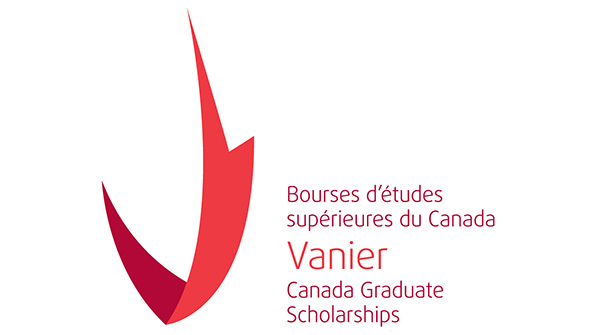 About being a Vanier Scholar
About being a Vanier Scholar
What does receiving a Vanier Scholarship mean to you
Receiving a Vanier Scholarship is both thrilling and daunting. I feel so proud to know my accomplishments and leadership experience are being recognized at the highest level of government funding agencies in Canada, and financially having this award means I can dedicate more time and energy to my studies.
With this increased visibility, however, comes added responsibility and pressure to continue to excel. I am excited to rise to this occasion, and to use this platform to continue my advocacy efforts towards equity in academia and medicine, particularly on behalf of 2SLGBTQIA+ populations.
Tell us about your Vanier research
Every year in North America, about 4.5% of all cancer is diagnosed in adolescents and young adults (AYA) between the ages of 15 and 39 years. Most AYA cancer patients survive their treatment; however, they also have a high chance of side effects affecting their long-term health. Some of the most common health problems seen in AYA cancer survivors affect the heart and blood vessels, which we call the cardiovascular system. Survivors have identified cardiovascular health as being very important to them because of its link to severe disease and early death. If cardiovascular disease is found early, there is also a chance to intervene and prevent their disease from progressing.
In childhood cancer survivors, there are standard screening guidelines to look for heart disease and related conditions. These do not exist for AYA cancer survivors as not enough research has been done to identify those most at risk, nor when that risk becomes significant.
In this project, we will study all the survivors of AYA cancer in Ontario since 1987 using health care records data housed at the Institute for Clinical Evaluative Sciences. We will describe how often AYA cancer survivors are affected by cardiovascular disease compared to their peers who have never had cancer. We are interested in acute problems such as heart attacks, strokes, and death and more chronic issues including high blood pressure, diabetes, and high cholesterol. We will be able to look at what factors might increase the risk of having these problems. This includes individual characteristics such as age, sex, and factors associated with disparity, and cancer-related factors, such as treatment type. We will also explore how having one problem might increase the risk of having more problems over time.
Using these results, we will build a model that predicts which survivors are most at risk of developing heart disease. These findings will also help to design evidence-based health surveillance guidelines for AYA survivors. We look forward to using this project to improve the health of AYA survivors in Canada and beyond.
About graduate student life
What inspired you to pursue a postgraduate degree?
Most folks I speak with are a bit surprised that I still want to be a university student after 17 years (and counting) of ongoing training. The truth is, I love academia and always feel like there’s more to learn. I knew that I wanted to pursue formal clinical research training during my fellowship since, in pediatric oncology, research is a big part of what we do. Doing a PhD at this point in my career trajectory feels right – I finally have a good sense of the kinds of research I want to pursue for the rest of my life, it offers time to develop my ideas and future projects before starting a staff physician job, and flexibility with my young family at home. I am excited to build a career as both a physician and researcher, and for the doors that having a PhD will open.
Why did you choose to study at McMaster?
I have felt very supported by the faculty and researchers at McMaster University through the course of my fellowship in Pediatric Hematology-Oncology. The benefits of being a part of the Clinician Investigator Program and enrolling in a degree here at McMaster meant that both my graduate studies and clinical training were prioritized and supported in the last several years. I have developed a strong network here and am thrilled to stay.
What do you love most about your graduate program?
The department of Health Research Methods, Evidence and Impact (HEI) is recognized worldwide for providing excellent training and mentorship for clinician researchers and I am proud to be joining its ranks.
What is your favourite thing about living in Hamilton?
I have always loved living in cities where it is equally easy to access city-based things like concerts, festivals, and new restaurants, and also to get out of the cityscape and be surrounded by nature. Living in Strathcona, both things are possible: I love my neighbourhood community, easy access to waterfront trails, and walkability to Locke Street, James Street, and Westdale.
When you’re not busy being a graduate student, how do you like to spend your free time?
With a toddler at home, there’s not much of it! I’m lucky to have kept up with my passions though, and sing with a local community choir (A la Mode), and play competitive ultimate frisbee. I attended World Masters’ championships in Ireland in 2022 and will be traveling to BC for nationals in summer 2023. I also enjoy cooking, reading, and playing board games with my husband and friends.
Beyond Grad School
What do you see as the next step in your life journey?
It’s hard to imagine what life outside of being a university student or trainee is like since I’ve been in postsecondary school since 2005.
I think pursuing knowledge is permanently in my DNA! With so many tools in my belt now though, I’m excited post-PhD to transition into a staff physician role and launch my career as a clinician-scientist. I aim to be working as a Pediatric Oncologist (hopefully here in Ontario) and starting my own fledgling research projects.
Given my love for teaching, I also hope to explore opportunities for affiliation with a research department such as HEI, and mentoring graduate students and clinical trainees on their own projects.

